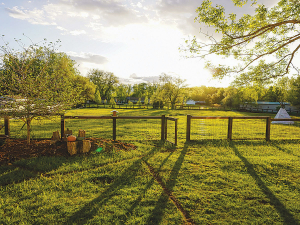DairyNZ opens applications for associate director role
DairyNZ is giving New Zealand farmers a unique opportunity to gain hands-on governance and leadership experience within the dairy sector.
 DairyNZ will explore shifts in technology uptake by farmers in the levy body’s five-yearly tech survey.
DairyNZ will explore shifts in technology uptake by farmers in the levy body’s five-yearly tech survey.
DairyNZ will explore shifts in technology uptake by farmers in the levy body’s five-yearly tech survey.
DairyNZ senior scientist Callum Eastwood says technology options for farmers have expanded rapidly over the years, and the survey looks to provide accurate insight into technology uptake nationally.
He says the survey will explore what technology has been adopted in the past five years and compare it with previous findings.
“In 2018, we forecast that the next study would show continued investment in commonly used automation technology, along with an increase in information technologies such as animal wearables,” says Eastwood.
“It will be interesting to see the comparison between the surveys and see what existing and new innovative farm technology have recently been adopted by farmers,” he says. “We will also be using this work to better understand the opportunities of technology uptake for our farmers.”
The DairyNZ project is led by Dr Callum Eastwood and Brian Dela Rue, and supported by delivery partner Cuthbert and Associates, who started conducting the survey from late February. It will involve 500 randomly selected dairy farmers nationwide, covering the topics of on-farm systems, technologies on-farm, workforce productivity and infrastructure.
Eastwood says the 2018 survey highlighted that rotary sheds were significantly more labour efficient, being generally newer, larger and having more technology incorporated.
“It also showed investment in information technologies such as milk meters, stock weighers and detection systems have historically been low, so we are keen to see if that has changed.
“We appreciate the support from farmers who participate in our survey and how it will help us further our understanding on current technology adoption and farm practices. For some, the thought of answering a survey at this time may be difficult, especially for those impacted by Cyclone Gabrielle.
“In our planning, we have taken that into account, and we are excluding farms in the Hawke’s Bay and East Coast for this reason. For other regions we are taking a phased approach, contacting farmers in the South Island first, and other cyclone-affected regions will be contacted towards the end of the survey period, later in March.”
Survey findings will be released in May, to share what practices are trending, the efficiencies they provide, and support other farmers to increase productivity and efficiency on-farm.
The World Wide Sires National All Day Breeds Best Youth Camp Best All Rounder plaudit has become family affair, with 2026 Paramount Cup winner Holly Williams following in her sister Zara's footsteps.
DairyNZ is giving New Zealand farmers a unique opportunity to gain hands-on governance and leadership experience within the dairy sector.
Herd improvement company LIC has posted a 5.2% lift in half-year revenue, thanks to increasing demand for genetics.
According to the latest Fresh Produce Trend Report from United Fresh, 2026 will be a year where fruit and vegetables are shaped by cost pressures, rapid digital adoption, and a renewed focus on wellbeing at home.
The Roar is a highlight of the game hunting calendar in New Zealand, with thousands of hunters set to head for the hills to hunt male stags during March and April.
OPINION: The past few weeks have been tough on farms across the North Island: floods and storms have caused damage and disruption to families and businesses.